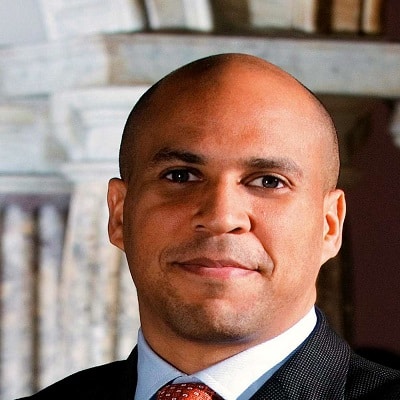Election Day is less than a week away, and it’s not just statewide marijuana, medical marijuana, sentencing reform, and drug testing initiatives that we’re watching. In five states, voters in some cities or counties will have opportunities to cast ballots for local marijuana reform measures.
In four out of the five states—California being the exception—the local initiatives, some binding, some not, are chances to vote for decriminalizing or legalizing pot. In all of those states, these city- or county-level measures are just the latest steps in sometimes years-long campaigns laying the groundwork for state-level legalization, either through the ballot box or through the legislature.
California is a special case this year. With pot possession already decriminalized, its unique medical marijuana laws providing broad, if uneven, access, and the near certainty that statewide legalization is going to be on the ballot in 2016, nobody is bothering with local legalization measures in 2014 (although they had successful ones in a number of cities in the past).
In California, all the action is about medical marijuana. Let’s start there.
California
With the state legislature unable or unwilling to pass statewide medical marijuana regulations, battles on the topic regularly devolve to the local level. This year is no exception. There are three broad areas of contention this year: cultivation, dispensaries, and taxes.
Four counties are dealing with cultivation issues. In Butte County, Measure B is a less restrictive ordinance thanMeasure A, which was passed by the board of supervisors. Both are on the ballot. In Lake County, Measure O andMeasure P, both seek to overturn the restrictive Measure N, which was narrowly approved by voters last year. Measure O would allow more plants to be grown, while Measure P declares that personal—not commercial—grows are a fundamental right and that people growing for their own use are exempt from county cultivation ordinances.
In Nevada County, Measure S would liberalize the county’s restrictive cultivation ordinance by allowing indoor cultivation anywhere, eliminating some minimum distance and other restrictions, and allowing up to 60 plants to be grown on plots over 30 acres. In Shasta County, Measure A is a referendum on an ordinance banning outdoor grows and home cultivation. A “no” vote on Measure A would repeal the ordinance.
Dispensaries are on the ballot in a number of cities and counties. In Orange County’s Santa Ana, two competing measures are on the ballot. Measure CC would allow for a minimum of 22 dispensaries, while the more restrictive, city council-sponsoredMeasure BB has no minimum number of dispensaries, a higher tax rate, and more restrictions than Measure CC.
In San Diego County, two cities have dispensary measures on the ballot. In Encinitas, Measure F would allow dispensaries and tax them at a 2.5% rate, while in La Mesa, Measure J would do the same thing. In Riverside County, Blythe’s Measure Z would authorize and regulate dispensaries, with a 15% business tax.
Straight taxation questions are also on the ballot in Santa Cruz County (Measure K), the city of Santa Cruz (Measure L), Shasta Lake City (Measure C), and two Riverside County communities, Cathedral City (Measure N) and Desert Hot Springs, which has both a cultivation tax measure (Measure HH) and a dispensary tax measure (Measure II) on the ballot.
[Thanks to the Drug Policy Forum of California and its November 2014 Election Guide for the information on California local initiatives.]
Maine
In Maine, the Marijuana Policy Project (MPP) and local allies are sponsoring possession legalization initiatives in two towns, Lewiston and South Portland. A similar effort in York was blocked by recalcitrant town leaders. This year’s effort builds on last year’s success in Portland, Maine’s largest city, where a similar initiative was approved with 67% of the vote.
In Lewiston, the personal legalization initiative is Question 2; it South Portland, it is Citizen-Initiated Ordinance #5.
Lewiston is the state’s second largest city, while South Portland is its fourth largest. Victories in those two cities next week, along with last year’s victory in Portland, will lay the groundwork for a statewide legalization push in 2016, which MPP says is coming.
Massachusetts
For the last six election cycles, activists with the Drug Policy Forum of Massachusetts and MassCann/NORML have been laying the groundwork for marijuana law reform through the use of non-binding Public Policy Questions (PPQs), by which voters signal their reform desires to their elected representatives. The questions have been on medical marijuana, decriminalization, and legalization—and they have never lost.
Public opinion in the form of successful public policy questions helped decriminalize marijuana in 2008 and legalize marijuana in 2012. This year, the questions are all about legalization, and the aim is clear: making Massachusetts a legal marijuana state within the next couple of years.
This year, the question asks: “Shall the State Representative from this district be instructed to vote in favor of legislation that would allow the state to regulate and tax marijuana in the same manner as alcohol?”
Voters will be answering that question in the following districts: 4th Barnstable, 4th Berkshire, 1st Essex, 2nd Franklin, 14th Middlesex, 15th Middlesex, 24th Middlesex, and 8th Norfolk.
Michigan
In an fight led by the Safer Michigan Coalition, marijuana decriminalization is on the ballot in 11 Michigan towns and cities this year. Like the efforts in Maine and Massachusetts, the effort in Michigan this year is part of an ongoing process whose ultimate end is legalization. Eleven other Michigan cities, including Detroit, Flint, Grand Rapids, Kalamazoo, and Lansing—the state’s largest cities—have already passed similar measures. No city has ever defeated one.
This year, voters will have the chance to do the same in Berkley, Clare, Frankfort, Harrison, Huntington Woods, Lapeer, Mt. Pleasant, Onaway, Port Huron, Pleasant Ridge and Saginaw.
All will be voting on questions similar to this one, from Port Huron: “Shall the Charter of the City of Port Huron, Michigan be amended such that nothing in the Code of Ordinances shall apply to the use, possession or transfer of less than 1 ounce of marijuana, on private property, or transportation of 1 ounce or less of marijuana, by a person who has attained the age of 21 years?”
New Mexico
The state’s most populous county, Bernalillo County, and its third most populous, Santa Fe County, will vote onadvisory, non-binding questions designed to measure popular support for marijuana decriminalization.
In both counties, the question asks: “Are you in favor of the […] County Commission supporting County, City, and Statewide efforts to decriminalize possession of one ounce or less of marijuana?”
There should also have been a pair of municipal decriminalization initiatives in Albuquerque and Santa Fe, but it didn’t work out that way. The Drug Policy Alliance and Progress New Mexico worked through the summer and into the fall to put the initiatives before the voters in Albuquerque and Santa Fe, but neither actually happened.
In Santa Fe, the city council, when presented with the qualified initiative, just voted to accept it instead of putting it to a popular vote. In Albuquerque, the reason no vote is occurring is not so happy. Although the city council voted to put the initiative on the November ballot, Mayor Richard Berry (R) vetoed it.
———-
If the past is any indication, these building-block local initiatives should all fare very well at the polls and continue to build the number of American political jurisdictions that have gone on record for ending pot prohibition. Come back next week to see if we can confirm that.
Article From StoptheDrugWar.org - Creative Commons Licensing – Donate




